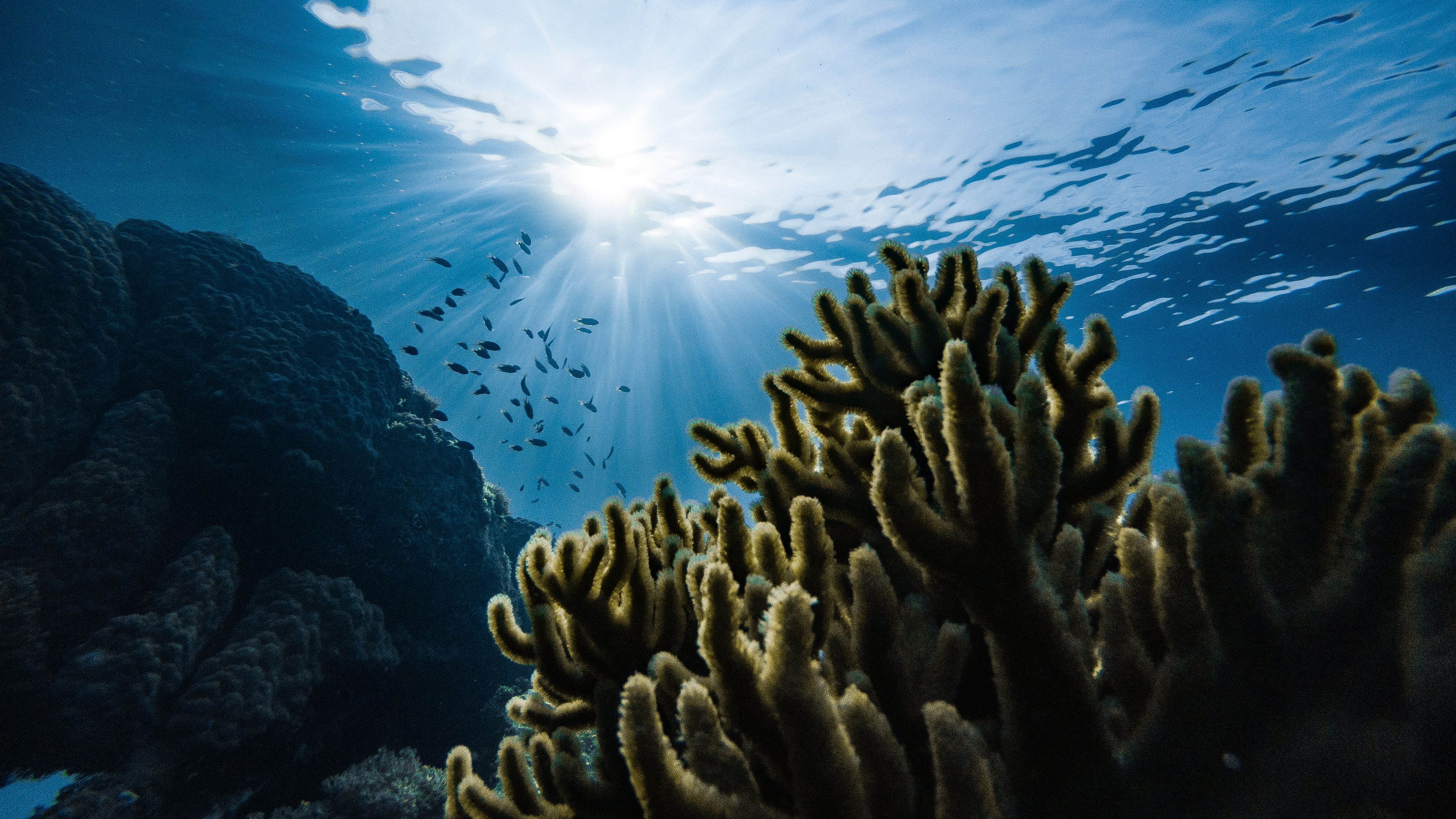Media release
From:
The window of opportunity to save the world’s coral reefs is still open but time is running out, new research shows.
An international study jointly led by Te Herenga Waka—Victoria University of Wellington marine biologist Dr Christopher Cornwall has calculated how coral reefs are likely to react to ocean acidification and warming under three different climate change carbon dioxide scenarios—low, medium, and worst-case.
The study, just published in the journal PNAS, has some good news to offer amid a grim outlook.
Dr Cornwall, a Rutherford Discovery Fellow in the School of Biological Sciences, who earlier this year won a $200,000 Prime Minister’s MacDiarmid Emerging Scientist Prize, says if the world can reduce carbon dioxide emissions drastically coral reef growth will be reduced but many reefs will still be able to grow.
“Some of them will even keep pace with sea-level rise. Even if we fail with those reductions but do keep within the intermediate emissions scenario, some coral reefs will still keep growing for a short while, but by the end of the century they will all be eroding.
“If we hit the worst-case scenario, very shortly all coral reefs will be eroding.”
The research by academics in New Zealand, Australia, the United States, France, the Netherlands, and the United Kingdom breaks new ground.
Jointly led by Dr Cornwall and French colleague Dr Steeve Comeau, the interdisciplinary group of scientists initially formed in 2016 as a working group led by the Australian Research Council’s Centre of Excellence for Coral Reef Studies.
Although there has been research investigating the impact of climate change on individual corals and coralline algae, the new study gives broader projections of ocean warming and acidification, and their interaction, on the net carbonate production of coral reefs.
“We have known for more than a decade ocean acidification will affect the ability of calcifying coral reef taxa to form their calcium carbonate skeletons, a process called ‘calcification’,” says Dr Cornwall.
“Also, we have known ocean warming brings increasing frequencies of marine heatwaves that cause coral mass bleaching, but that this warming itself also reduces calcification once it gets above a certain threshold.
“Although there was a wealth of information known about how certain organisms would fare under climate change, coral reef growth is not just the product of coral calcification and survival. Calcifying red algae, known as coralline algae, glue these reefs together and even form their own reefs in certain places in the world’s oceans.
“While corals are highly susceptible to ocean warming, coralline algae are more vulnerable to ocean acidification. Coral reef growth is also dictated by the removal of this calcium carbonate through either bioerosion—living organisms eating the reef—or the dissolution of sediments that help fill in the cracks between larger pieces of calcium carbonate.
“Both processes are likely to accelerate under ocean acidification and warming. However, no one study had put these processes together quantitatively previously.”
There are thousands of coral reefs around the world, each comprising different proportions of corals and coralline algae, with different types of bioeroders, such as parrotfish, sea urchins, and cyanobacteria, and different rates of sediment production.
The study used data on net calcification, bioerosion, and sediment dissolution rates measured or collated from 233 locations on 183 distinct reefs, 49 percent of them in the Atlantic Ocean, 39 percent in the Indian Ocean, and 11 percent in the Pacific Ocean.
This was then modelled against three Intergovernmental Panel on Climate Change emissions scenarios for low-, medium-, and high-impact outcomes on ocean warming and acidification for 2050 and 2100.
Dr Cornwall says their projections show most coral reefs will be unable to maintain growth from carbonate production by the end of the century under the medium- and high-impact scenarios. Even under the low-impact scenario, reefs will suffer severely reduced accretion rates.
“We forecast mean global reef net-carbonate production under these three pathways will decline by 76 percent, 149 percent, and 156 percent respectively by 2100.
“While 63 percent of reefs are projected to continue to accrete by 2100 under the low-impact pathway, 94 percent will be eroding by 2050 under the worst-case scenario, and no reefs will continue to accrete at rates matching projected sea-level rise under the medium- and high-impact scenarios by 2100.”
Drastic reductions in carbon dioxide emissions are now needed to give coral reefs the best chance of continuing to accrete in a future ocean, says Dr Cornwall.
“We are already observing global shifts in coral assemblages and severely reduced coral cover due to mass bleaching events. It is very unlikely corals will suddenly gain the heat tolerance required to resist these events as they become more frequent and intense.
“Our only hope for these reefs now is converting to alternatives to fossil fuels as soon as possible.”



 Australia; New Zealand; NSW; QLD; WA
Australia; New Zealand; NSW; QLD; WA



